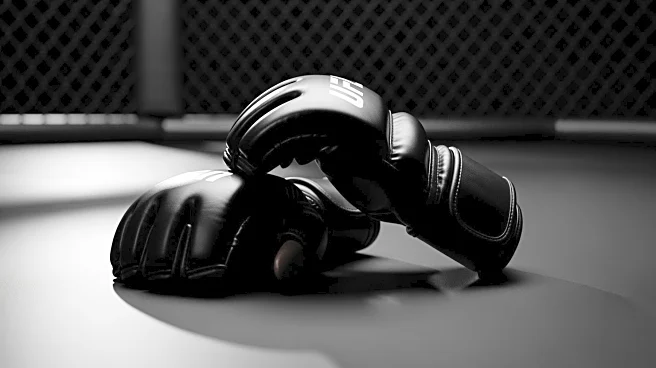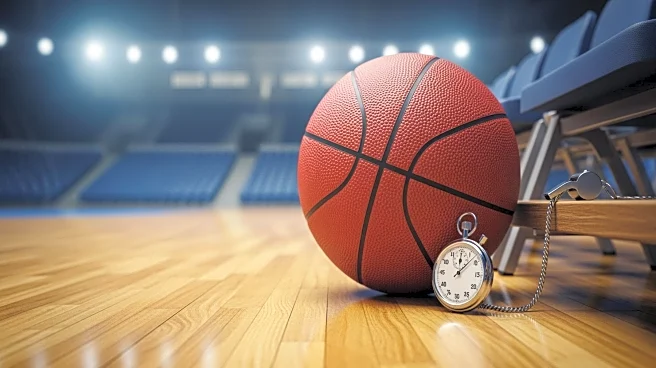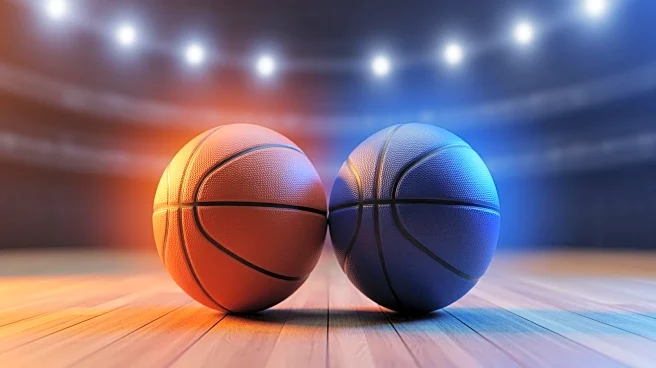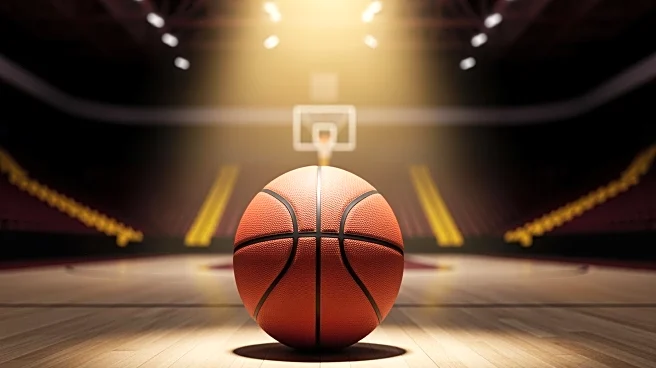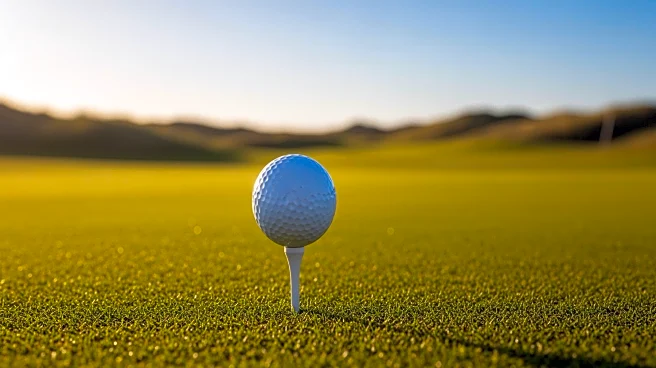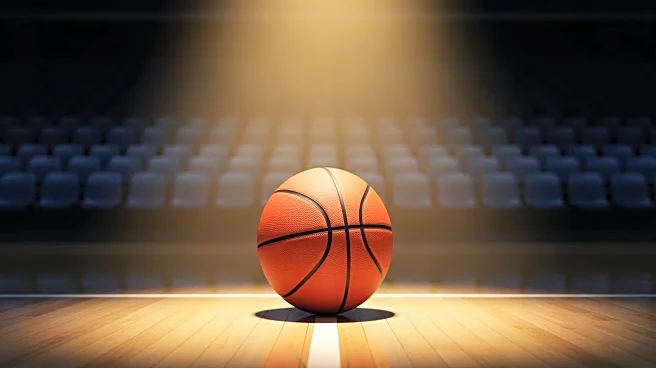What's Happening?
Islam Makhachev, widely regarded as one of the best lightweight fighters in UFC history, is set to compete in the welterweight division at UFC 322. Makhachev, known for his formidable skills on the canvas and striking ability, aims to join the elite group
of fighters who have won UFC titles in two weight classes. The event, taking place at Madison Square Garden, features Makhachev against Jack Della Maddalena, who is defending his title in his natural weight class. Makhachev's transition to welterweight follows his successful run in the lightweight division, where he has won 15 consecutive fights, equaling Anderson Silva's record for most consecutive victories in UFC history.
Why It's Important?
Makhachev's move to welterweight is significant as it could reshape the competitive landscape of the division. His success in lightweight has already established him as a dominant force, and a victory in welterweight could further solidify his legacy as one of the greatest fighters in UFC history. This transition also highlights the physical demands of fighting at different weight classes and the strategic decisions fighters must make to optimize their performance. The outcome of this fight could influence future matchups and title opportunities within the UFC, impacting both Makhachev's career and the broader dynamics of the sport.
What's Next?
If Makhachev wins, he will likely continue to pursue opportunities in the welterweight division, potentially setting up high-profile matches against other top contenders. His success could inspire other fighters to consider moving between weight classes to achieve similar dual-title status. The UFC may also explore new promotional strategies to capitalize on Makhachev's growing popularity and the excitement surrounding his potential achievements.
Beyond the Headlines
Makhachev's transition to welterweight raises questions about the long-term sustainability of fighters competing across multiple weight classes. It also underscores the importance of adaptability and resilience in professional sports, as athletes must continuously evolve to maintain their competitive edge. This development could lead to discussions about the physical and mental challenges associated with such transitions, influencing training methodologies and fighter support systems.
